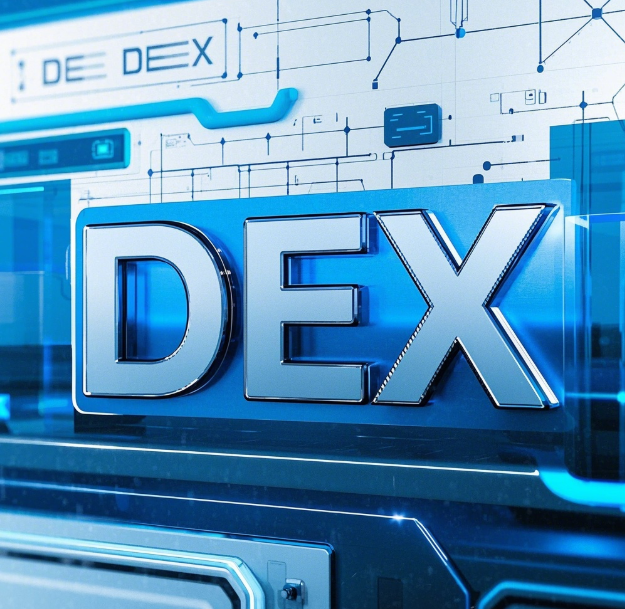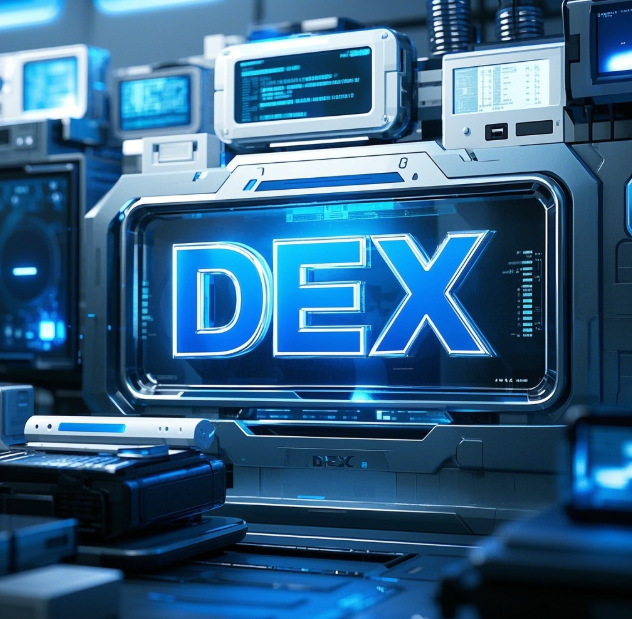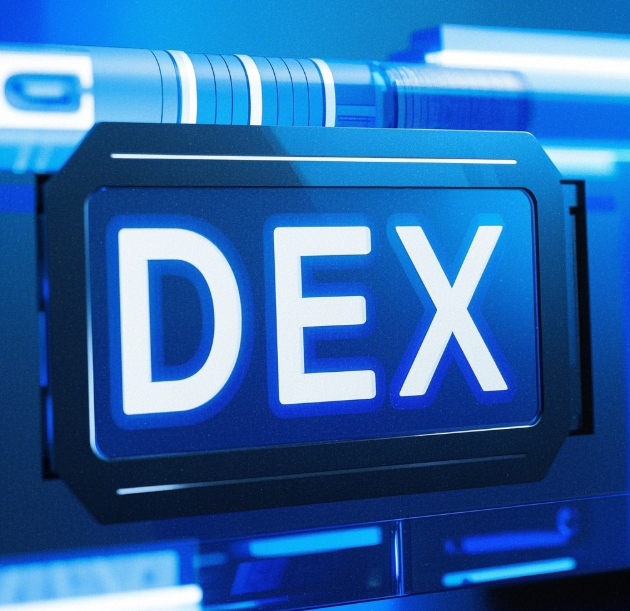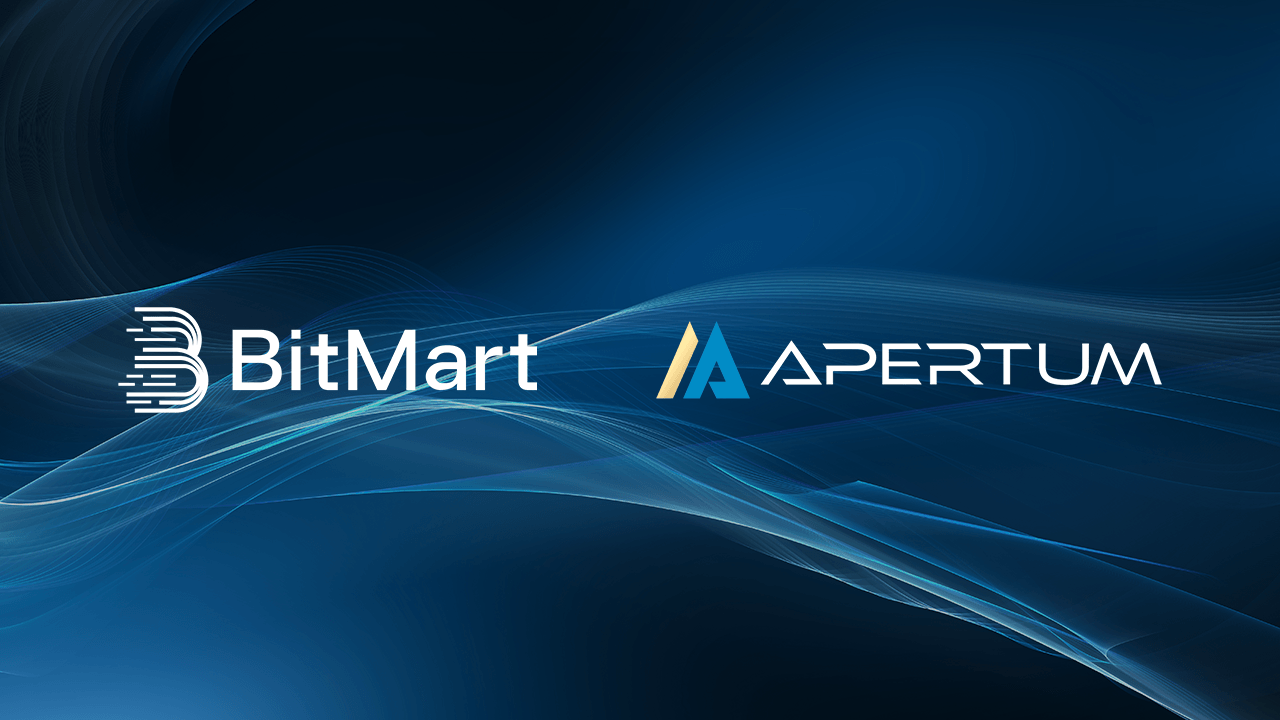In today’s rapidly developing world of digital currencies, decentralized exchanges (DEXs) are gaining increasing attention. For many newcomers to the crypto space, DEXs might sound both unfamiliar and complex. However, understanding their operational principles and advantages is crucial. Knowledge of decentralized exchanges not only helps you trade more securely but also provides a clearer perspective for your investment decisions in this industry. This article will introduce you to what a decentralized exchange is, how it works, and the advantages it holds over traditional centralized exchanges.
What is a Decentralized Exchange (DEX)?
A decentralized exchange (DEX) is a platform that allows users to trade cryptocurrencies without the need for intermediaries. On a DEX, transactions are executed through smart contracts, meaning users do not need to deposit funds into an exchange account; instead, they can trade directly using their digital wallets. This is fundamentally different from traditional centralized exchanges, which typically require users to create accounts and deposit assets, with the exchange managing and matching those assets.

The emergence of decentralized exchanges aims to address issues faced by centralized exchanges, such as security, privacy, and control. DEXs allow users to have better control over their assets and generally incur lower costs than centralized exchanges. In simple terms, decentralized exchanges are products that embrace blockchain technology and promote the development of decentralized finance (DeFi).
How DEX Works
Decentralized exchanges generally operate using blockchain technology and smart contracts. Here are some key aspects of how DEXs function:
1. Smart Contracts
Smart contracts are programs that run on the blockchain and can automatically execute, control, and record the terms related to transactions. In DEXs, smart contracts manage trade matching, settlement, and asset transfer. This means that when you trade on a DEX, the smart contract automatically matches buyers and sellers based on market conditions without involving intermediaries.
2. User Control Over Assets
In a decentralized exchange, users control their private keys, signifying that they always hold authority over their assets. Users do not need to deposit funds into the trading platform; instead, they trade directly through their wallets. This significantly reduces the risk of asset theft, as hackers cannot access users' wallets.
3. Liquidity Pools
Many DEXs (such as Uniswap) operate on a liquidity pool model, allowing users to provide liquidity in exchange for earnings. In this model, users can deposit their funds into liquidity pools and earn transaction fees from trades. The relationship between liquidity providers and traders is optimized, leading to more efficient trading.
4. Trustlessness
Decentralization means that users do not need to trust the exchange itself. All transaction data is publicly available on the blockchain, allowing anyone to verify the execution of contracts. Since everyone trades in a fair environment, DEXs effectively reduce the risk of market manipulation.

Advantages of DEX
1. Security
One of the most significant advantages of decentralized exchanges is security. Since users control their assets rather than having them stored in the exchange's wallet, DEXs greatly reduce the risk of hacking and asset theft. Even if the exchange is attacked, users’ assets remain unaffected as they are continuously held in personal wallets.
2. Privacy Protection
In centralized exchanges, users are required to provide personal information to register an account, while in decentralized exchanges, users can choose to trade anonymously. This privacy protection mechanism is particularly important for users who wish to keep their personal information secure.
3. Global Accessibility
Decentralized exchanges are not bound by geographical restrictions; virtually any user with an internet connection can participate in trading from anywhere. This is especially important for users in regions with underdeveloped financial infrastructures, where it is often difficult to engage with centralized exchanges.
4. Lower Fees
Trading on decentralized exchanges typically results in lower transaction fees. Traditional centralized exchanges often charge higher trading and withdrawal fees, whereas DEXs reduce trading costs through liquidity pools and other mechanisms.
5. Support for Multiple Asset Trading
Decentralized exchanges usually support a wide range of cryptocurrency transactions. Compared to some centralized exchanges that limit the types and quantities of assets traded, DEXs can allow more token transactions, providing users with a larger selection. This means investors can more easily find assets they are interested in.
Limitations of DEX
While decentralized exchanges have many advantages, they are not without their shortcomings. Understanding these limitations is equally important.
The user interfaces of many decentralized exchanges can be relatively complex, making them less user-friendly for newcomers. Traditional centralized exchanges often provide a more straightforward user experience, lowering the entry barrier for new users.

Since all transactions need to be completed on the blockchain, the execution speed of a DEX may be affected by network congestion. During periods of high trading volume, the time required for transaction confirmations can lengthen, potentially impacting user investment decisions and trading experiences.
Although decentralized exchanges increase asset liquidity through liquidity pools, in some cases, particularly during trading of lesser-known tokens, liquidity may be insufficient. This can lead to users experiencing significant price slippage during trades.
Decentralized exchanges rely on smart contracts for transactions, and the code within these contracts may contain vulnerabilities. If a technical issue arises, users' assets may be at risk. Therefore, when using DEXs, users should ensure they select reputable platforms and liquidity pools.
In decentralized exchanges, there is typically no centralized management team, making it difficult for users to receive timely support when problems arise. In contrast, centralized exchanges often have dedicated customer support teams that can resolve user issues more quickly.
How to Choose the Right DEX
When considering the use of a decentralized exchange, several key factors should be kept in mind:
Research the platform's reputation and historical performance, looking into user reviews and feedback. Choosing DEXs that have been tested over time and recognized by the community is a wise decision.
Ensure that the selected DEX supports the cryptocurrency assets you want to trade. Some DEXs may only support specific tokens, so it’s a good idea to verify this before selecting one.
It’s important to select a DEX with high liquidity, as higher liquidity means better trading experiences with reduced price slippage.
Check the security measures of the DEX, such as whether it has undergone security audits or has mechanisms in place to guard against hacks. These factors directly affect the safety of users' assets.
Also consider the platform's user interface and overall experience. Some decentralized exchanges may have complex interfaces, so choosing an easy-to-use platform can save time in learning.
Decentralized exchanges (DEXs) are emerging rapidly as a new model for cryptocurrency trading. They offer users enhanced security, privacy protection, global accessibility, and lower trading fees. However, understanding their operational principles and advantages while also acknowledging their limitations is essential.
For crypto newcomers, familiarizing yourself with DEXs can help you trade cryptocurrencies more effectively and construct a safer and more diversified investment portfolio. Mastering relevant knowledge before entering this opportunity-rich field will lay a solid foundation for your investment journey. We hope this article provides you with a deeper understanding of decentralized exchanges and helps you make smarter investment decisions.















No comments yet